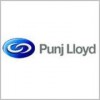


i
Tata
Projects
Work with us
![]()
Proud winner of ABECA 2025 - AmbitionBox Employee Choice Awards
Filter interviews by
Tata Projects Deputy Manager Interview Questions and Answers
11 Interview questions
Civil engineering is a branch of engineering that deals with the design, construction, and maintenance of infrastructure projects.
Involves designing and constructing buildings, bridges, roads, dams, and other structures
Focuses on ensuring structures are safe, functional, and sustainable
Requires knowledge of materials, construction techniques, and project management
Involves collaboration with architects, contractor...
Workability of concrete refers to its ease of placement and compaction. Slump value of M30 concrete is measured using a slump cone. Bar bending schedule is a document detailing the reinforcement steel bars in a structure.
Workability of concrete refers to how easily it can be mixed, placed, and compacted.
Slump value of M30 concrete is measured using a slump cone test, where the concrete is placed in the cone and th...
Types of road failures, types of contracts, FIDIC red book and silver book, critical path definition
Types of road failures include rutting, cracking, potholes, and edge cracking
Types of contracts in construction projects include lump sum contracts, cost plus contracts, and unit price contracts
FIDIC red book is a standard form of contract for construction, and FIDIC silver book is for turnkey projects
Critical path ...
Cracks in PQC occur due to various reasons such as improper curing, poor quality of materials, and inadequate thickness. Tests and checks performed during PQC include slump test, compressive strength test, and surface hardness test. Pre-checks include ensuring proper subgrade preparation and post-checks include checking for cracks and surface defects. Cracks can be arrested by using epoxy injection or polyurethane...
I have experience in airfield marking using various types of markings such as runway centerline, taxiway edge, and hold line markings.
I have used paint and thermoplastic materials for marking.
I have followed FAA regulations and guidelines for marking dimensions and placement.
I have also assisted in the maintenance and repainting of existing markings.
Examples of markings I have done include runway threshold marking...
Yes, corrections can be made in an invoice by following certain steps.
The correction should be made as soon as possible to avoid any confusion.
The original invoice should not be destroyed, but rather marked as 'void' or 'cancelled'.
A new invoice should be created with the correct information and a reference to the original invoice.
The reason for the correction should be clearly stated on the new invoice.
Both the o...
Density of steel is higher than fresh water and sea water.
Density of steel is around 7850 kg/m^3
Density of fresh water is around 1000 kg/m^3
Density of sea water is around 1025 kg/m^3
Quantity surveyors are responsible for managing costs and budgets for construction projects.
Preparing cost estimates and budgets for construction projects
Monitoring and controlling project costs
Advising on procurement strategies to obtain the best value for money
Assessing and valuing variations to the contract
Preparing and submitting final accounts
Various SAP T codes for Issues
MB21 - Create Reservation
MB1A - Goods Withdrawal
MB1B - Transfer Posting
MB1C - Other Goods Receipts
MB1E - Create Stock Transport Order
MB1F - Goods Issue
MB1H - Maintain Reservation
MB1T - Transfer Posting
MB1A - Goods Withdrawal
MB1B - Transfer Posting
MB1C - Other Goods Receipts
MB1E - Create Stock Transport Order
MB1F - Goods Issue
MB1H - Maintain Reservation
The question is asking for the calculation of either the square of the diameter of a bar divided by 162 or the density of the steel multiplied by the area of the steel.
Calculate the square of the diameter of the bar and divide by 162
Calculate the density of the steel and multiply by the area of the steel
Compare the two results to determine the answer
Tata Projects Deputy Manager Interview Experiences
21 interviews found
(1 Question)
- Q1. Related to Railway construction and maintenance related questions
(2 Questions)
- Q1. Maintenance, Service, oil
- Q2. Polymer use, reuse, LG, HIRA, lifting plan
(1 Question)
- Q1. Lifting plan, tendum lifting, HIRA
(1 Question)
- Q1. What is civil engineering?
- Ans.
Civil engineering is a branch of engineering that deals with the design, construction, and maintenance of infrastructure projects.
Involves designing and constructing buildings, bridges, roads, dams, and other structures
Focuses on ensuring structures are safe, functional, and sustainable
Requires knowledge of materials, construction techniques, and project management
Involves collaboration with architects, contractors, an...
(2 Questions)
- Q1. How much does it takes for construction of 33kV Ss subjected to availability of all materials on time.
- Ans.
The construction of a 33kV Substation depends on various factors such as location, size, design, and availability of materials.
Construction time can vary based on the complexity of the project and the efficiency of the construction team.
Availability of all materials on time is crucial to avoid delays in the construction process.
Factors like weather conditions, permits, and inspections can also impact the construction t...
- Q2. Density of Steel, Fresh water and sea water
- Ans.
Density of steel is higher than fresh water and sea water.
Density of steel is around 7850 kg/m^3
Density of fresh water is around 1000 kg/m^3
Density of sea water is around 1025 kg/m^3
Interview Preparation Tips
On subject matter related to legal compliance.
(1 Question)
- Q1. Location preferences, salary negotiations and grade and structure
(1 Question)
- Q1. About Substations
Interview Preparation Tips
I applied via Naukri.com and was interviewed in Oct 2023. There were 3 interview rounds.

(1 Question)
- Q1. Technical questions for your relative job.
(1 Question)
- Q1. Name previous company.what do you of work.
- Ans.
I worked at XYZ Company as a Deputy Manager.
Managed a team of 10 employees
Implemented new strategies to increase productivity
Achieved a 20% increase in sales within the first year
Streamlined processes to improve efficiency
I applied via Walk-in and was interviewed in May 2023. There were 3 interview rounds.

(1 Question)
- Q1. BRIEF INTRODUCTION ABOUT THE WORKS ONE IS EXECUTING AT THEIR CURRENT ROLE AND BASED ON THAT CASE STUDY GIVEN FOR OPTIMAL SOLUTION
- Ans. ONE HAS BE MENTALLY PREPARED FOR ASWERING THE QUESTIONS W.R.T. SENARIOS GIVEN BASED ON YOUR INPUTS
(2 Questions)
- Q1. QUESTIONS RELATED TO " WHY YOU ARE SWITCHING, ROLES AND RESPONSIBILITIES, EXPECTATIONS AND SALARY STRUCTURE WITH ACCEPTANCE
- Q2. ONE CAN ANSWER BASED ON THEIR SITUATION AND OPTIMALLY CONVINCING SKILLS
I appeared for an interview before Jan 2024.
(2 Questions)
- Q1. How to calculate the weight of the steel?
- Ans.
The weight of steel can be calculated using its density and volume.
Calculate the volume of the steel object in cubic meters
Determine the density of the specific type of steel being used
Multiply the volume by the density to get the weight in kilograms
For example, if the volume of steel is 0.5 cubic meters and the density is 7850 kg/m^3, the weight would be 3925 kg
- Q2. Square of Dia of bar /162 or Desity of the steel * Area of the steel
- Ans.
The question is asking for the calculation of either the square of the diameter of a bar divided by 162 or the density of the steel multiplied by the area of the steel.
Calculate the square of the diameter of the bar and divide by 162
Calculate the density of the steel and multiply by the area of the steel
Compare the two results to determine the answer
(2 Questions)
- Q1. Certificate verification & Salary Negotiation
- Q2. Verified certificates & Negotiate Salary
Interview Preparation Tips
I applied via Walk-in and was interviewed in Nov 2022. There were 2 interview rounds.

(2 Questions)
- Q1. Why there are cracks in PQC? What are the test & checks you will perform during pqc. What are its pre & post checks. How you arrested cracks in PQC Which curing compound you have used during pqc
- Ans.
Cracks in PQC occur due to various reasons such as improper curing, poor quality of materials, and inadequate thickness. Tests and checks performed during PQC include slump test, compressive strength test, and surface hardness test. Pre-checks include ensuring proper subgrade preparation and post-checks include checking for cracks and surface defects. Cracks can be arrested by using epoxy injection or polyurethane grou...
- Q2. How you have done airfield marking. What was the type of marking in airport.
- Ans.
I have experience in airfield marking using various types of markings such as runway centerline, taxiway edge, and hold line markings.
I have used paint and thermoplastic materials for marking.
I have followed FAA regulations and guidelines for marking dimensions and placement.
I have also assisted in the maintenance and repainting of existing markings.
Examples of markings I have done include runway threshold markings, to...
Interview Preparation Tips
- PQC
- Airfield marking
Top trending discussions






Tata Projects Interview FAQs
Some of the top questions asked at the Tata Projects Deputy Manager interview -
Tell us how to improve this page.
Tata Projects Interviews By Designations
- Tata Projects Deputy Manager Interview Questions
- Tata Projects Assistant Manager Interview Questions
- Tata Projects Senior Engineer Interview Questions
- Tata Projects Safety Officer Interview Questions
- Tata Projects Safety Supervisor Interview Questions
- Tata Projects Electrical Supervisor Interview Questions
- Tata Projects Civil Site Engineer Interview Questions
- Tata Projects Civil Engineer Interview Questions
- Show more
Interview Questions for Popular Designations
Overall Interview Experience Rating
based on 32 interview experiences
Difficulty level
Duration
Deputy Manager Interview Questions from Similar Companies
Tata Projects Deputy Manager Reviews and Ratings
based on 308 reviews
Rating in categories
|
Deputy Manager
1.2k
salaries
| ₹5.7 L/yr - ₹17.6 L/yr |
|
Assistant Manager
912
salaries
| ₹4 L/yr - ₹14.2 L/yr |
|
Manager
441
salaries
| ₹12 L/yr - ₹21 L/yr |
|
Senior Engineer
399
salaries
| ₹5.2 L/yr - ₹12.5 L/yr |
|
Senior Manager
363
salaries
| ₹11 L/yr - ₹33 L/yr |

Shapoorji Pallonji Group

Kalpataru Projects International

Nagarjuna Construction Company

KEC International
- Home >
- Interviews >
- Tata Projects Interview Questions













